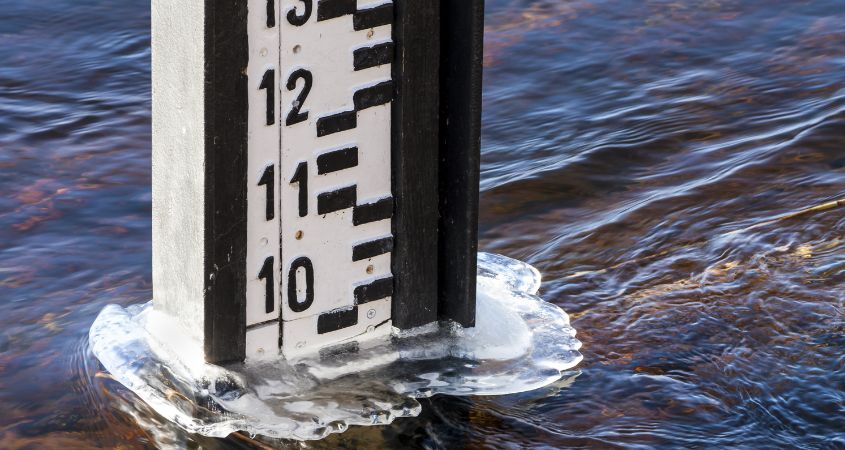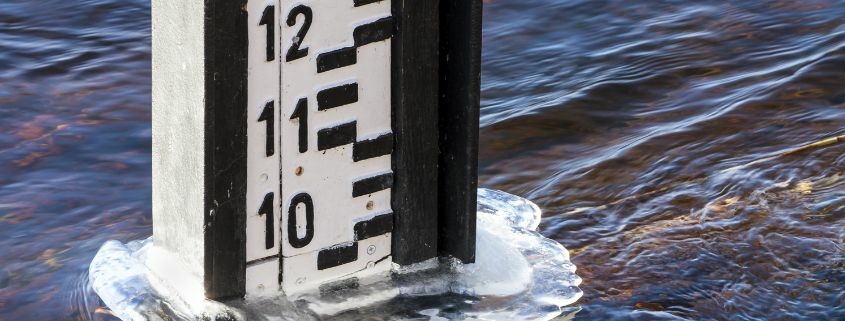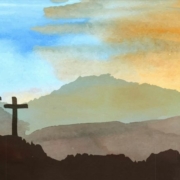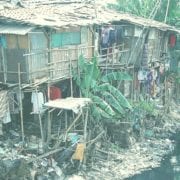As Sea Levels Rise, How Do We?
BY MICHAEL DOWNS | August 22, 2022
Sunday’s Readings
To be honest, I didn’t spend a lot of time on Sunday with the “discipline” from Hebrews, or the “gnashing of teeth” in the Gospel of Luke. Instead I stayed with an inviting message from Isaiah: all nations and languages are included in the expansive invitation of God. Or as Fr. Greg Boyle, S.J., reminds us, we believe in a God whose circle of compassion is so big, no one is outside of it.
God’s message here is being sent even to “distant coastlands.” How thoughtful and thorough the outreach! When these scriptures were written by authors with limited knowledge of the full scale of the planet, “distant coastlands” may have implied “as far as you can imagine!”

Now we can see today’s literal “distant coastlands,” some of which are disappearing before our very eyes due to climate change. We can see people leaving, “brothers and sisters from all the nations,” including many of the world’s poorest and most vulnerable. These are climate refugees: people who must leave their homes and communities because of the effects of climate change. Though the scope of their suffering has become clearer, climate refugees largely lack any formal recognition or protection under international law. By 2050, according to the World Bank, there will be 143 million climate refugees from sub-Saharan Africa, South Asia, and Latin America.
Here in the U.S., some of our own “distant coastlands” are already suffering. Communities like Isle de Jean Orleans, Louisiana and Newtok, Alaska, for example, were home to Indigenous people who have become our nation’s first climate refugees.
Even as Congress passed unprecedented funding for climate action this month, other headlines brought the sobering truth that rising seas are not so distant. Polar ice caps are melting much faster than previously predicted. A superstorm will devastate parts of the California coastline this century. Miami is the most vulnerable coastal city worldwide.
When we consider the “distant coastlands” of our conscience, which people and places are outside our circle of compassion and concern?
As sea levels continue to rise, how do we rise up in solidarity with climate refugees, on our own shorelines and beyond?
Michael Downs serves as director of justice and kinship at Bishop O’Dowd High School in Oakland. He is also a member of the California Catholic Conference’s Environmental Stewardship Committee and the Vatican’s Laudato Si’ Action Platform Working Group.









As our Rite of Christian Initiation of Adults (RCIA) group studied Laudato Si yesterday morning, I reflected on what we are doing for climate refugees. This is a large group that has to find a new place to live. They are not even considered by any known group that wants to change their plight. They have been affected/effected by roaring fires, winds and rains and now have to find a different place to dwell.It seems to me that having less, giving more and figuring a way to temper the storms is an important movement forward. my Granddaughter said to me, each month I take my box for donation out of my closet and put it on my bed to fill with those things I want to donate to others be it clothing, toys or school books. We don’t need homes with more storage, her Mom told her, but we need to have less so that others who need certain things can find them and use them. We all can start doing that process in our home.
The very first, whole nations to become climate refugees will be Pacific Islanders – people from Kiribati, Tuvalu….They are always forgotten because they are small island nations.
Climate Change be it physical, social, or economic are all man-made disasters. Humankind needs to learn to live its fullness, practicing a bit of mindfulness before entering oblivion.
This particularly touches me because I have worked with refugees for years and know how hard life is in refugee camps and particularly for those from Haiti and Latin America who are continually denied entry to the US, despite the desperate situations in their home countries. Ever since the topic of climate change first came up I have dreaded what will happen to those torn from their homelands as this unfolds. Jesus would expect us to open our door to the stranger. How will we respond?
We can either pray for rain in drought countries or use technology to do so.
To protect against floods we need to harness the water to provide food, and channel the water where it will do the least damage.
We have all the know how, technology and expertise. We just need to implement practical steps instead of pontificating in endless world forums.